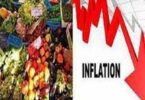F.P. Report
LAHORE: The Pakistan Industrial and Traders Associations Front (PIAF) has suggested the government to announce incentives for oversees Pakistanis to further boost up foreign remittances, besides enhancing investment in the country by Pakistani expatriates.
The PIAF Chairman Faheemur Rehman Saigol said that remittances last month came in at $2.21 billion and this figure, while an improvement from last month’s $2.09 billion, was significantly lower than market expectations of $2.4-2.5 billion. However, on a month-on-month basis, remittances rose by 5.3% but they declined by 11.24% compared to last year, when remittances stood at $2.49 billion. The market was expecting remittances to improve following a massive crackdown on exchange rate manipulation in the open market, and the subsequent reduction in the premium between the open and interbank markets.
The PIAF Chairman said that Pakistanis abroad may choose to send remittances through banks, in which case they would become part of the interbank market, or exchange companies, which are part of the open market. Typically, the difference in the rates of the two markets is not very large; under the agreement with the International Monetary Fund (IMF), it cannot exceed 1.25% for more than five days.
However, between August 28 and September 4, the difference in the market rates widened to an alarming extent both in absolute and percentage terms — up to nearly Rs 30 per dollar or 8.5%. And before the crackdown was launched in early September, a significant number of foreign exchange dealings, including remittances, were either being done ‘off the books’ in the open market or diverted to the grey market. It all changed, however, once the authorities launched a massive crackdown on illegal foreign exchange trade.
Faheem Saigol said that Pakistan’s economic growth is expected to see a decline during next two years. So, foreign remittance flows are the only hope which can support the current account balance, as the GDP growth is not going to decelerate.
Lamenting the gloomy picture of Pakistan’s position in the region with regard to its GDP growth, he said that upward trend in remittances to Pakistan from overseas workers is a positive news for the country’s economy.
Quoting the data of Pakistan Bureau of Statistics, he said that exports rose by just 1.8 percent to $15.1 billion, while imports fell 6.1 percent to $36.6 billion despite imposition of high duties on import. If the government is eyeing $30 billion in exports revenue in the current fiscal year, it would have to take measures to boost exports and investment, he maintained.
The PIAF Chief said that structural reforms can revive Pakistan’s economic growth with major focus on incentives for oversees Pakistanis workers. If government assists overseas Pakistanis and provides them incentives, they can play a pivotal role in boosting Pakistan’s economy through their remittances and investments for the socio-economic prosperity, he said.
He said oversees Pakistanis can invest in agriculture, transportation, telecom and energy sectors which have huge potential. The government has badly failed to attract foreign investment because the persisting process of approval of projects discourages the investors, he added. He asked the bureaucracy to mould simple procedures by revisiting the existing processes so that the investors could be facilitated. He said that export-oriented industries should be facilitated.
He said that remittances can help not only in financing the deficit in import payments but also in foreign debt repayments, suggesting the government to focus on structural reforms, which can revive Pakistan’s economic growth with major focus on incentives for overseas Pakistanis workers.
According to SBP data, the highest amount of remittances was received from Saudi Arabia at $538.2 million, followed by the United Arab Emirates at $400 million, the United Kingdom at $311.1 million and the United States at $263.4 million. Meanwhile, remittances from other GCC countries totalled $248.1 million, while Pakistanis in the European Union sent $269.3 million. Overall, total remittances in the first three months of FY24 stood at $6.33 billion, down 19.8% from last year’s figure of $7.89 billion.







